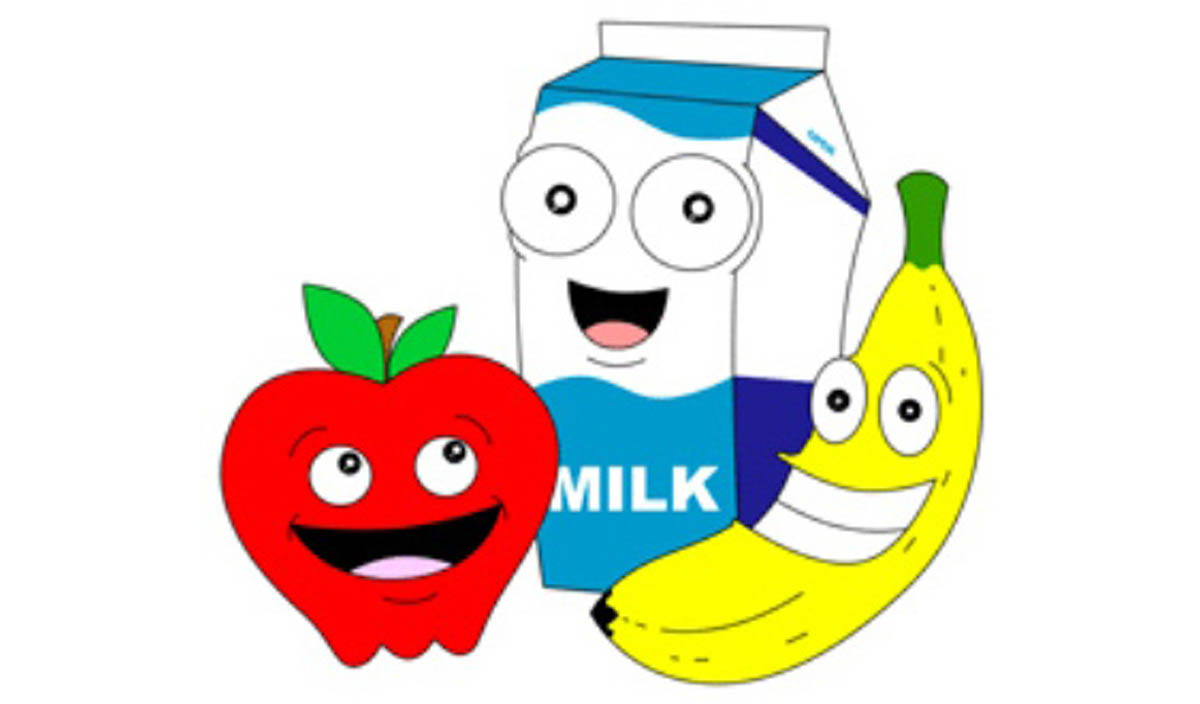Table of Contents
On the basis of their results from the study, the researchers have concluded that branded products in the lunchroom may effect children’s selection of food. Using appealing cartoon characters on healthier food options may sway more children towards them. This sway is considerably more than the sway seen by children towards unhealthy snacks even if they are supported by cartoon characters.

Another study, carried out by Low and colleagues, found that the consumption of vegetables and fruits by children can be increased through interventions like cartoon videos, and use of rewards like stickers, pencils and erasers with a cartoon face slapped on them.
The study found that using these interventions had a significant effect on the choice of a child’s diet and the effect was sustained over time.
The importance of a healthy diet has been stated clearly in the World Health Organization’s 2003 report. According to it, the cancers of the oral cavity, esophagus, stomach and colo-rectum are all a result of a poor diet. The UK Government report, “Our Healthier Nation” suggests that almost one-thirds of all cancers are the result of a deficient diet. Consuming a diet rich in fruits and vegetables may solve many health problems of adulthood. It may reduce blood pressure, lead to a better management of diabetes, improve bowel function, and delay the development of cataract. Increase in fruit and vegetable consumption may also improve the fiber uptake and reduce the total fat intake.
In countries like the U.S. where obesity is rampant, promoting a healthy diet in children is also important as it helps in reducing obesity.
According to the WHO, ‘passive over-consumption’ of highly processed foods which are energy dense, e.g. fast foods are at least partially responsible for the sharp increase in the rate of obesity in the last two decades. Consuming ‘energy dilute foods’ such as vegetables and fruits, along with wholegrain cereals may help in reducing obesity.
Apart from the aforementioned reasons, healthy eating habits should be promoted in children as these habits once inculcated in childhood, tend to persist even in later life.
Keeping in mind the benefits of promoting a healthy diet in children, we should play a more pro-active role in making our children consume healthy food, rather than just coaxing them to do so. We should take a leaf out of the strategies adopted by the food companies and try to lure our children with the help of familiar favorite cartoon characters. Branding vegetables and fruits with stickers is definitely a good option. It is cheap and can even be tried at home. Apart from using stickers, experts have suggested associating fruits and veggies with stories linked to cartoon characters. Remember the times when our mothers made us eat spinach telling us it will help us develop muscles like Popeye. We too can be imaginative and cook similar stories. Giving funky and cool names to veggies can be another strategy. You can tell your child to eat a ‘cool cucumber’ to look ‘cool’ or have ‘brainy walnuts’ to be the most intelligent kid in the class.
Remember that a little extra effort on your part would go a long way in maintaining your child’s health. Isn’t this what all moms long for?
- “Cartoon stickers may sway kids' food choices”, by Genevra Pittman, published in the August 21, 2012 issue of Reuters Health, accessed on September 1, 2012.
- “Can Branding Improve School Lunches?” by Brian Wansink, et al, published online August 20, 2012 in the Archives of Pediatric & Adolescent Medicine, accessed on September 1, 2012.
- “Children and Healthy Eating: A systematic review of barriers and facilitators”, by Thomas J, et al, published in 2003, accessed on September 1, 2012.
- Photo courtesy of 81310432@N06 on Flickr: www.flickr.com/photos/81310432@N06/7448940676
- Photo courtesy of 81310432@N06 on Flickr: www.flickr.com/photos/81310432@N06/7448940748
- Photo courtesy of breeps on Flickr: www.flickr.com/photos/breeps/1470207022

